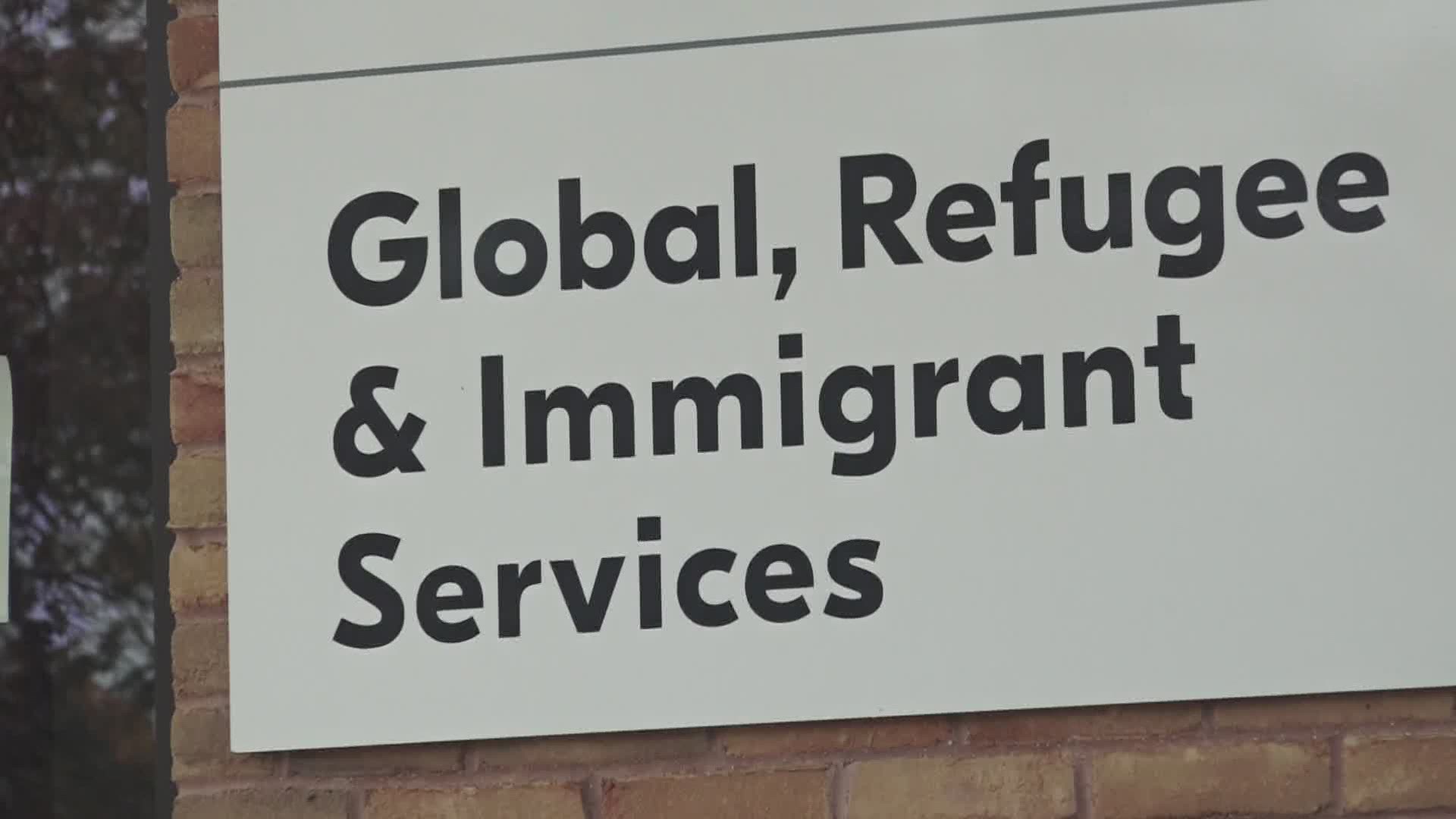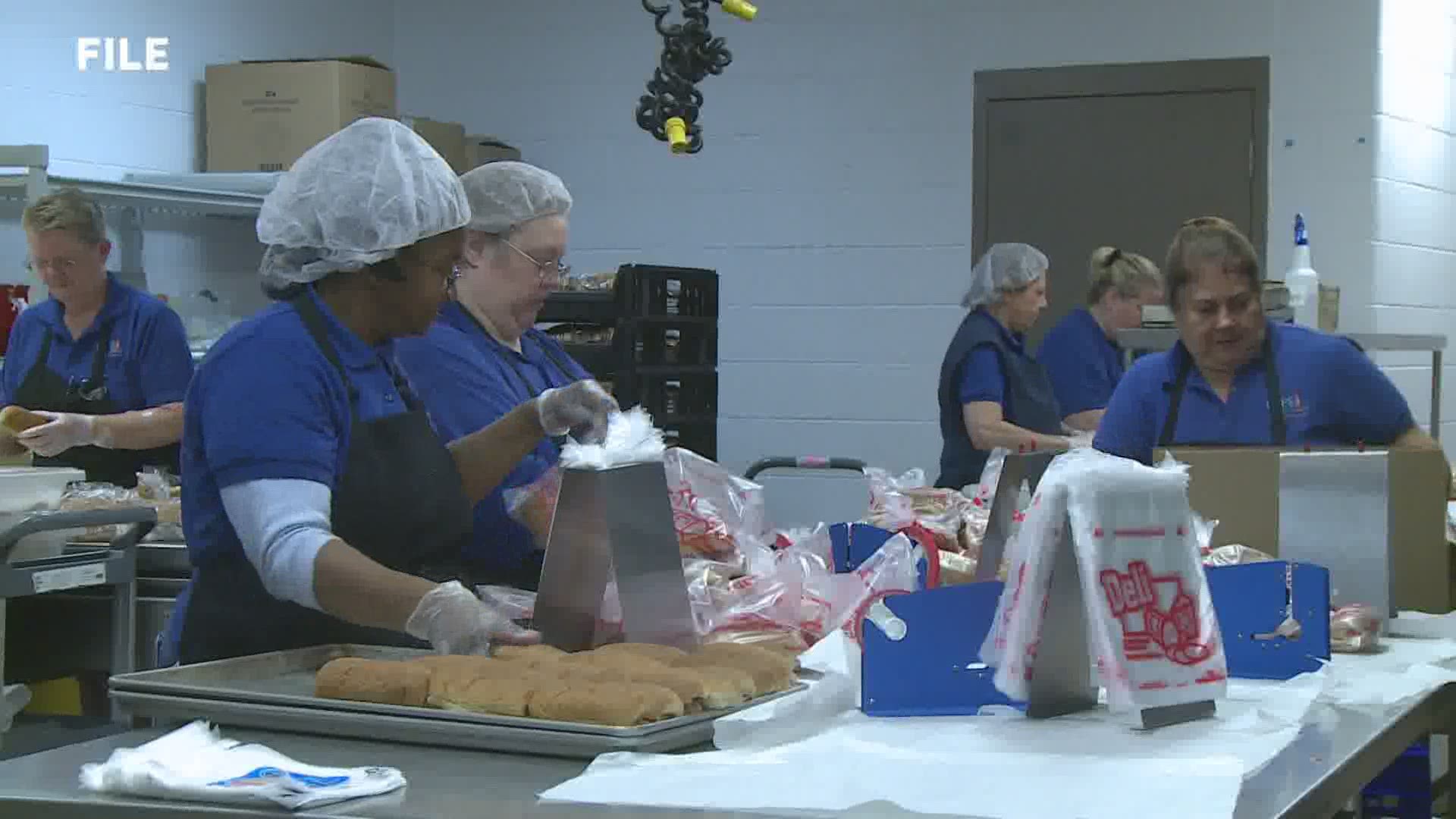KENT COUNTY, Mich. — When Aziz Uddin Muhammad was resettled in America several years ago, he'd never had access to an education.
According to the U.S. government, Muhammad, a Rohingya refugee, is 20 years old, but his mother, who still lives in Myanmar, says he's several years younger. It's uncommon for Rohingya to track birth dates.
In January, he will age out of the unaccompanied refugee minor program and lose financial supports from the government, making it more difficult to continue his education. He's spent the last three years studying to both learn English and complete high school courses.
Switching to virtual learning due to the coronavirus pandemic has made that more challenging, he says.
"It's very difficult, complicated for me," Muhammad said. "I couldn't understand the words, sometimes the computer does not always work."
Muhammad lives with a foster family in Kentwood through Bethany Christian Services. His foster mom is assisting him through his online classes, but he says he worries for students who don't have that.
"I am also concerned about other kids, other students. How can they learn? It is very difficult," he said.
Susan Kragt, Grand Rapids branch director of refugee and immigrant services at Bethany Christian, said it's a concern for their office, as well.
"For English language learners, we're worried about the gap between them and their peers growing even more over this time," she said, noting that in some cases refugee students also have steep learning curves with technology.
Aside from language and technology barriers, Kragt says the shift to primarily virtual learning is also difficult for students who rely on routine and consistency.
"Any changes in schedule, any sense of normalcy that gets shifted can be very difficult to navigate," she said of young people in the unaccompanied minor refugee program, who have resettled alone after living in often times traumatic conditions.
Kragt says on average the unaccompanied refugee program in Grand Rapids usually consists of about 250 young people. Staff have been working with individual students to prepare them for the school year, whether it's virtual, in-person or a hybrid of both.
"But, we can't do it alone and we really want to be partnering with community schools to make sure that these kids and families are getting their needs met," she said.
At Kent Intermediate School District, Casey Gordon, supervisor of special populations, said she is advising districts to take extra steps for English language learners, especially those who are learning virtually. On average, there are about 15,000 English language learners in the county's schools.
"We need a lot of instructional videos, we may need some Zoom meetings set up and some assistance from community organizations to ensure that our students really do have a great foundation," she said.
Gordon said it's also important for schools to remember that unaccompanied refugee minor students often times are self sustaining, meaning they need flexibility in accessing online courses.
The Refugee Education Center in Grand Rapids, which has assisted students and families since 2006, is one of the organizations that provides supports to families navigating the school system. Hannah Werth, high school transition coordinator, says the organization has been able to pivot their programming and help train families on technology.
Werth said the Center is asking schools to meet the needs of refugee students and families, including by sending communications in their native languages and setting clear expectations.
"Schools have been extremely supportive of our students thus far, and we're grateful for their flexibility in expectations," Werth said in an email.
Muhammad said he recently heard from his friend, who is also Rohingya and living in Grand Rapids, that he wanted to quit due to how difficult school had become during the pandemic.
"He said 'I don't want to study, I want to go to work,' I said, 'Don't give up,'" Muhammad recalled.
►Make it easy to keep up to date with more stories like this. Download the 13 ON YOUR SIDE app now.
Have a news tip? Email news@13onyourside.com, visit our Facebook page or Twitter. Subscribe to our YouTube channel.


